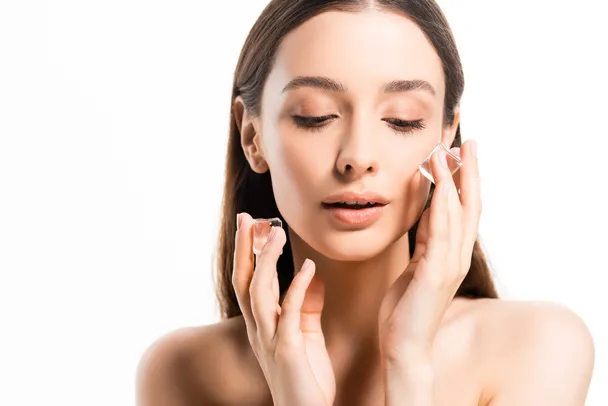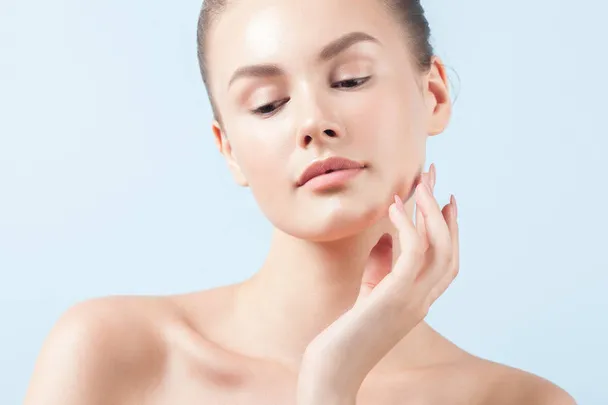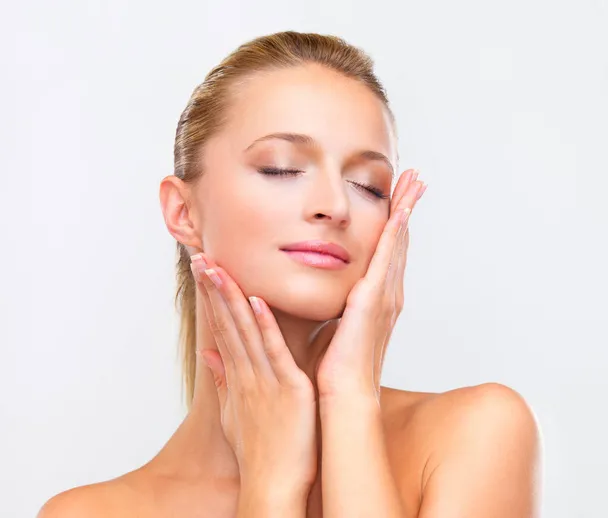Is Going a Week Between Hair Washes Too Long? The Truth Revealed
The frequency of washing hair has been a topic of debate among beauty enthusiasts and haircare professionals for years. While some advocate for daily washing to maintain cleanliness and freshness, others argue that less frequent washing can benefit the health and appearance of the hair. In particular, going a week between hair washes has gained popularity as a way to preserve natural oils, reduce dryness, and promote overall hair health. But is it too long to wait between washes? Let’s uncover the truth behind this common question.
The Myth of Daily Washing:
For decades, the prevailing belief was that hair should be washed daily to keep it clean and free of oil and dirt. However, frequent washing can strip the hair and scalp of natural oils, leading to dryness, irritation, and even overproduction of oil as the scalp tries to compensate. Additionally, daily washing can cause damage to the hair shaft, resulting in breakage, split ends, and dullness. This misconception stemmed from a desire for cleanliness but often resulted in unintended consequences for hair health. The scalp naturally produces oils to moisturize and protect the hair, and frequent washing can disrupt this delicate balance. As a result, many people are now reevaluating their haircare routines and opting for less frequent washing to maintain the health and integrity of their hair.
The Rise of “No-Poo” and Co-Washing: In recent years, the “no-poo” movement has gained momentum, advocating for less frequent shampooing or even eliminating shampoo altogether. Instead, many people opt for co-washing, using conditioner to cleanse the hair while preserving its natural oils. This approach has been praised for its ability to maintain moisture, reduce frizz, and improve the overall health of the hair.
The “no-poo” movement challenges the traditional notion that shampoo is essential for clean and healthy hair. Instead, it emphasizes the importance of maintaining the natural balance of oils on the scalp and hair. Many commercial shampoos contain harsh detergents and sulfates that can strip away the scalp’s natural oils, leading to dryness and irritation. By avoiding shampoo altogether or using it less frequently, individuals can avoid these potential pitfalls and promote healthier hair.
Co-washing, short for “conditioner washing,” has emerged as a popular alternative to traditional shampooing. Instead of using shampoo to cleanse the hair, individuals use conditioner to remove dirt, excess oil, and product buildup while simultaneously conditioning and moisturizing the hair. This method is particularly beneficial for those with dry or curly hair, as it helps to retain moisture and enhance curl definition.
One of the key benefits of co-washing is its ability to maintain the hair’s natural oils, resulting in softer, more hydrated strands. Unlike shampoo, which can strip away these oils, conditioner helps to replenish moisture and protect the hair from environmental damage. As a result, co-washing can reduce frizz, improve manageability, and enhance the overall health and appearance of the hair.
Additionally, co-washing is gentler on the scalp and hair, making it suitable for individuals with sensitive skin or scalp conditions. The absence of harsh detergents and sulfates reduces the risk of irritation and dryness, making co-washing a more comfortable and enjoyable experience for many.
Benefits of Going a Week Between Washes:
Going a week between hair washes can offer several benefits for both the hair and scalp. By allowing natural oils to accumulate, the hair becomes better moisturized, resulting in increased softness, shine, and manageability.
Improved Moisture: One of the primary benefits of going a week between washes is that it allows natural oils to accumulate on the scalp and hair. These oils, known as sebum, act as a natural conditioner, helping to moisturize the hair and scalp. By avoiding frequent washing, you can preserve these oils and prevent the hair from becoming dry and brittle. As a result, your hair is left feeling softer, smoother, and more hydrated.
Enhanced Shine: In addition to moisturizing the hair, allowing natural oils to accumulate can also enhance its shine. Sebum helps to coat the hair shaft, reflecting light and giving the hair a healthy, luminous appearance. By going longer between washes, you can maximize the benefits of these natural oils, leaving your hair looking glossy and vibrant.
Increased Manageability: Another advantage of less frequent washing is that it can improve the manageability of your hair. Natural oils help to lubricate the hair shaft, reducing friction and tangles. This makes it easier to comb or brush through your hair, resulting in fewer knots and less breakage. Additionally, well-moisturized hair is more flexible and resilient, making it easier to style and manipulate into your desired look.
Preservation of Hair Color: For those who color their hair, going longer between washes can help preserve the vibrancy of their color. Washing your hair less frequently reduces the amount of color-stripping chemicals that come into contact with your hair, helping to maintain its hue and intensity. This can extend the time between salon visits and save you money on touch-ups and maintenance.
Reduction in Styling Products: Finally, going a week between washes can reduce the need for styling products such as hairspray, gel, or mousse. Natural oils provide a certain level of hold and definition to the hair, reducing the need for additional products to achieve your desired style. This can save you time and money, as well as minimize product buildup and potential damage to the hair.
Factors to Consider:
While going a week between hair washes can be beneficial for some, it may not be suitable for everyone. Factors such as hair type, scalp condition, and lifestyle should be taken into account when determining the appropriate frequency of washing.
Hair Type:
Different hair types have varying needs when it comes to washing frequency. Those with oily hair may find that they need to wash more frequently to prevent buildup and maintain a fresh appearance. On the other hand, individuals with dry or curly hair may benefit from washing less frequently to avoid stripping away natural oils and causing dryness
Scalp Condition:
The condition of your scalp can also influence how often you need to wash your hair. Those with dandruff or scalp conditions such as seborrheic dermatitis may need to wash more frequently to remove flakes and soothe irritation. Conversely, individuals with sensitive or easily irritated scalps may benefit from washing less frequently to avoid exacerbating any existing issues.
Lifestyle: Your lifestyle and daily activities can also impact how often you need to wash your hair. For example, individuals who engage in activities that result in excessive sweating, such as exercise or outdoor work, may need to wash their hair more frequently to remove impurities and maintain freshness. Similarly, exposure to environmental pollutants, such as pollution or smoke, can also necessitate more frequent washing to keep the hair clean and free from buildup.
Finding the Right Balance: Ultimately, the key to healthy hair lies in finding the right balance between cleansing and preserving natural oils. For some individuals, washing every few days may be sufficient to keep their hair clean and refreshed, while others may prefer to go longer between washes to allow their natural oils to accumulate and nourish their hair.
Experimenting with different washing routines and products is essential to find what works best for your hair type and lifestyle. For example, those with oily hair may find that they need to wash more frequently to prevent buildup and maintain a fresh appearance, while individuals with dry or curly hair may benefit from washing less often to avoid stripping away natural oils and causing dryness.
Incorporating dry shampoo into your routine can help extend the time between washes by absorbing excess oil and refreshing the hair. Scalp treatments, such as exfoliating scrubs or nourishing masks, can also help maintain scalp health and promote healthy hair growth.
Occasional clarifying washes are another essential aspect of finding the right balance. These deep-cleansing shampoos remove product buildup, excess oil, and impurities from the hair and scalp, leaving it feeling clean and revitalized. However, it’s essential not to overdo it with clarifying washes, as they can strip away natural oils and potentially cause dryness and damage if used too frequently.
By listening to your hair’s needs and experimenting with different washing routines and products, you can find the perfect balance that promotes optimal hair health and beauty. Whether you choose to wash every few days, once a week, or somewhere in between, the key is to find a routine that leaves your hair looking and feeling its best while maintaining its natural balance and vitality.
going a week between hair washes is not necessarily too long, provided it is done in a way that preserves the health and appearance of the hair. By understanding the benefits of less frequent washing and considering individual factors, such as hair type and lifestyle, it is possible to find a washing routine that promotes optimal hair health and beauty. Whether you choose to wash daily, weekly, or somewhere in between, the most important thing is to listen to your hair’s needs and adjust your routine accordingly.










